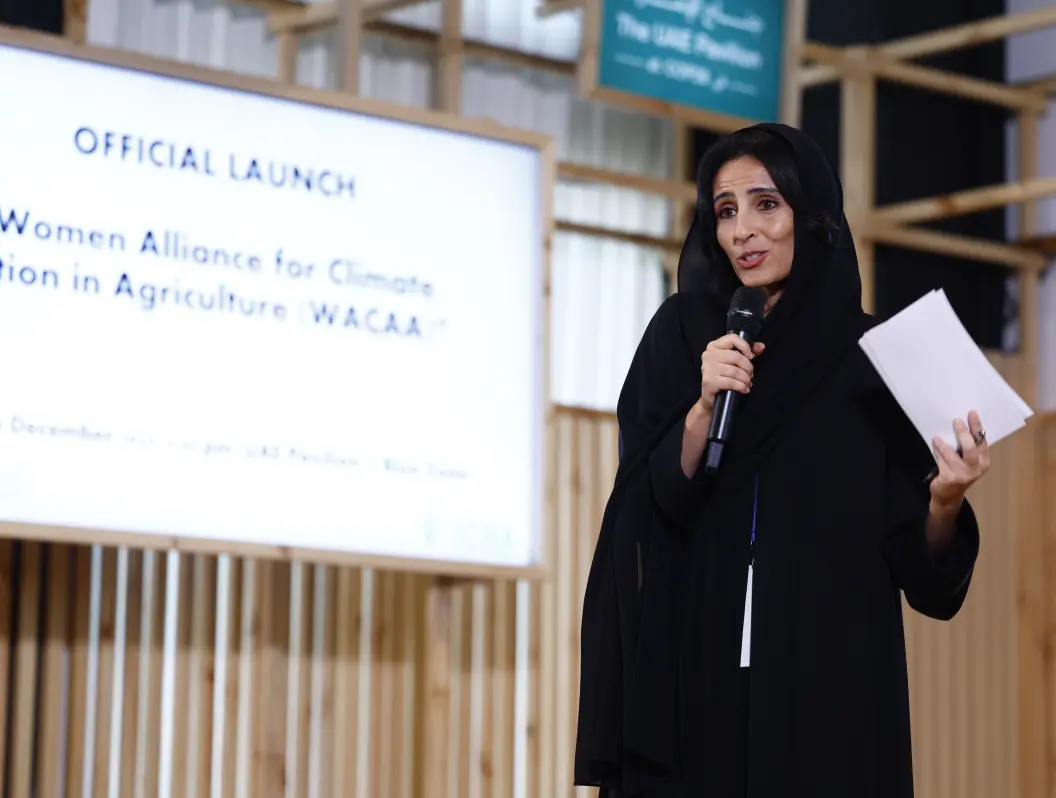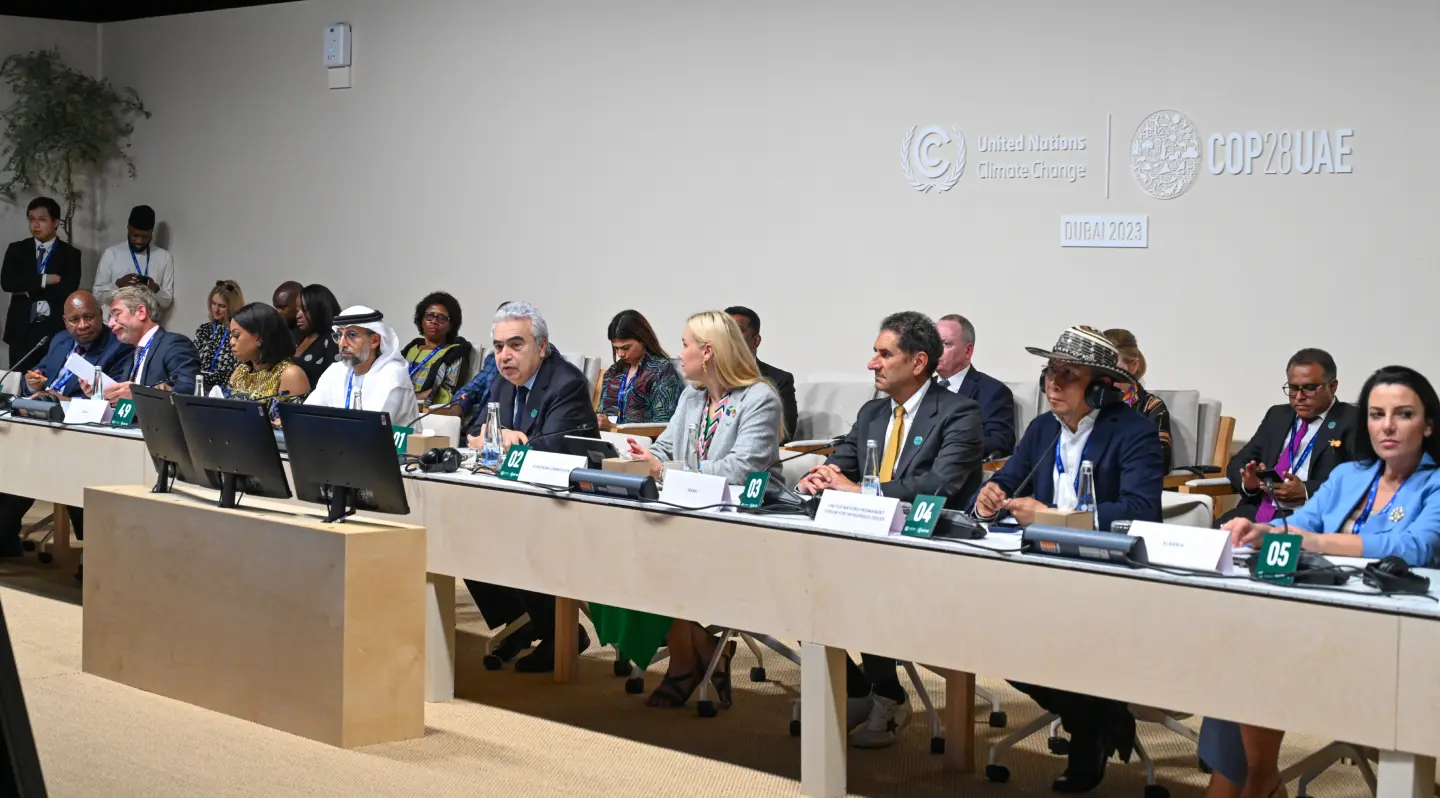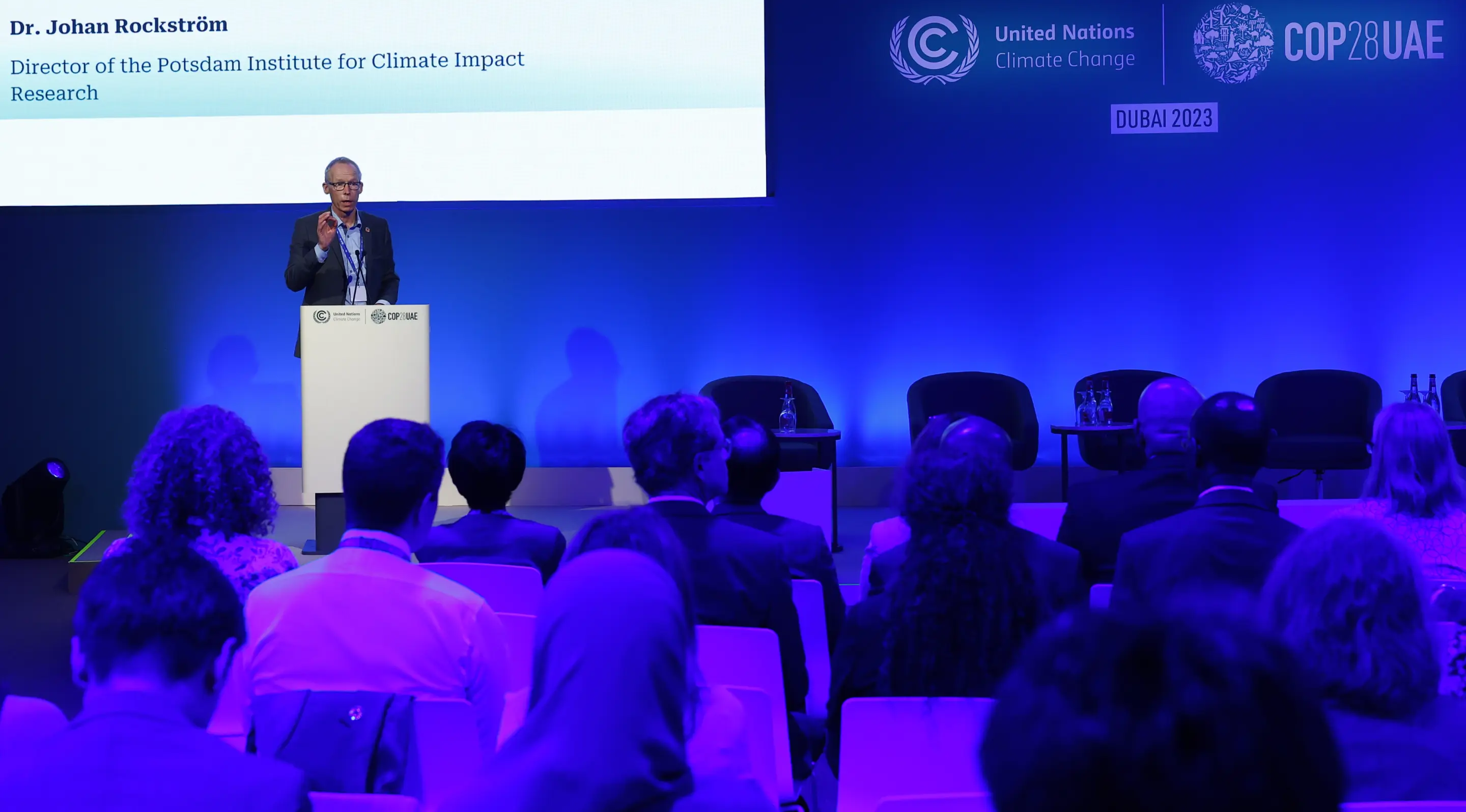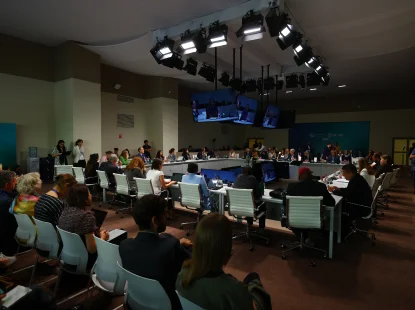Climate and Health
We recognize the urgency of taking action on climate change, and note the benefits for health from deep, rapid, and sustained reductions in greenhouse gas emissions, including from just transitions, lower air pollution, active mobility, and shifts to sustainable healthy diets.
In this year of the first Global Stocktake, and given the lessons learned from the COVID-19 pandemic, which strained all health systems and further widened inequities and vulnerabilities within and among countries, regions and populations, we are committed to the advancement of climate-resilient development, the strengthening of health systems, and the building of resilient and thriving communities, for the benefit of present and future generations.
In order to work towards ensuring better health outcomes, including through the transformation of health systems to be climate-resilient, low-carbon, sustainable and equitable, and to better prepare communities and the most vulnerable populations for the impacts of climate change, we commit to pursuing the following common objectives:
- Strengthening the development and implementation of policies that maximize the health gains from mitigation and adaptation actions and prevent worsening health impacts from climate change, including through close partnerships with Indigenous Peoples, local communities, women and girls, children and youth, healthcare workers and practitioners, persons with disabilities and the populations most vulnerable to the health impacts of climate change, among others.
- Facilitating collaboration on human, animal, environment and climate health challenges, such as by implementing a One Health approach; addressing the environmental determinants of health; strengthening research on the linkages between environmental and climatic factors and antimicrobial resistance; and intensifying efforts for the early detection of zoonotic spill-overs as an effective means of pandemic prevention, preparedness and response.
- Recognizing that healthy populations contribute to, and are an effect of, climate resilience and an outcome of successful adaptation across a range of sectors - including food and agriculture, water and sanitation, housing, urban planning, health care, transport and energy - by prioritizing and implementing adaptation actions across sectors that deliver positive health outcomes.
- Improving the ability of health systems to anticipate, and implement adaptation interventions against, climate-sensitive disease and health risks, including by bolstering climate-health information services, surveillance, early warning and response systems and a climate-ready health workforce.
- Promoting a comprehensive response to address the impacts of climate change on health, including, for example, mental health and psychosocial wellbeing, loss of traditional medicinal knowledge, loss of livelihoods and culture, and climate-induced displacement and migration.
- Combating inequalities within and among countries, and pursuing policies that work towards accelerating achievement of the Sustainable Development Goals, including SDG3; reduce poverty and hunger; improve health and livelihoods; strengthen social protection systems, food security and improved nutrition, access to clean sources of energy, safe drinking water, and sanitation and hygiene for all; and work to achieve universal health coverage.
- Promoting steps to curb emissions and reduce waste in the health sector, such as by assessing the greenhouse gas emissions of health systems, and developing action plans, nationally determined decarbonization targets, and procurement standards for national health systems, including supply chains.
- Strengthening trans- and inter-disciplinary research, cross-sectoral collaboration, sharing of best practices, and monitoring of progress at the climate-health nexus, including through initiatives such as the Alliance for Transformative Action on Climate and Health (ATACH).
Recognizing that health actors face challenges in accessing finance for health and climate change activities, particularly in low- and middle-income countries, we underscore the need to better leverage synergies at the intersection of climate change and health to improve the efficiency and effectiveness of finance flows.
- Encouraging the scaling up of investments in climate and health from domestic budgets, multilateral development banks, multilateral climate funds, health financing institutions, philanthropies, bilateral development agencies, and private sector actors.
- Encouraging international finance providers, including development banks, to strengthen the synergies between their climate and health portfolios, and enhance their support for country-led projects and programs in the health-climate nexus.
- Sharing learnings and best practices on financing and implementing climate-health interventions, and develop a common understanding of existing needs for climate-health finance, grounded in country priorities and needs. We welcome ongoing efforts in this regard, including by the COP28 presidency, the ATACH finance working group, and the joint Development Bank working group for climate-health financing.
- Improving monitoring, transparency and evaluation efforts of climate finance, as relevant, including for climate-health initiatives, in order to strengthen common understanding of its efficiency and effectiveness, and to maximize the delivery of positive health outcomes.
To achieve these aims - according to our national circumstances - we commit to pursuing the better integration of health considerations into our climate policy processes, and of climate considerations across our health policy agendas, including by:
- Incorporating health considerations in the context of relevant Paris Agreement and UNFCCC processes, with a view to minimizing adverse effects on public health, and mainstreaming climate considerations in global health work programs, including those of the World Health Organization, where relevant and appropriate.
- Taking health into account, as appropriate, in designing the next round of nationally determined contributions, long term low greenhouse gas emission development strategies, national adaptation plans and adaptation communications.
We commit to convene regularly with diverse line-ministries and stakeholders to foster synergies and strengthen national and multilateral collaboration on climate change and health, including through the ATACH initiative. We will review our collective progress at future UN Climate Change Conferences, World Health Assemblies, and other global convenings.
Signatures:
1. Albania
2. Andorra
3. Angola
4. Antigua and Barbuda
5. Argentina
6. Armenia
7. Australia
8. Austria
9. Azerbaijan
10. Bahamas
11. Bangladesh
12. Barbados
13. Belgium
14. Bhutan
15. Brazil
16. Brunei Darussalam
17. Bulgaria
18. Burkina Faso
19. Burundi
20. Cabo Verde
21. Cambodia
22. Canada
23. Chad
24. Chile
25. China
26. Colombia
27. Comoros
28. Cook Islands
29. Costa Rica
30. Cote d'Ivoire
31. Croatia
32. Cuba
33. Cyprus
34. Czechia
35. Denmark
36. Dominican Republic
37. Ecuador
38. Egypt
39. El Salvador
40. Equatorial Guinea
41. Estonia
42. Ethiopia
43. European Union
44. Fiji
45. Finland
46. France
47. Gabon
48. Gambia
49. Germany
50. Ghana
51. Greece
52. Guatemala
53. Guinea
54. Hungary
55. Iceland
56. Indonesia
57. Iran
58. Iraq
59. Ireland
60. Israel
61. Italy
62. Jamaica
63. Japan
64. Jordan
65. Kazakhstan
66. Kenya
67. Kiribati
68. Kuwait
69. Kyrgyzstan
70. Lao People's Democratic Republic
71. Latvia
72. Lebanon
73. Lesotho
74. Liberia
75. Lithuania
76. Luxembourg
77. Madagascar
78. Malawi
79. Malaysia
80. Maldives
81. Mali
82. Malta
83. Mauritania
84. Mauritius
85. Mexico
86. Micronesia
87. Moldova
88. Monaco
89. Mongolia
90. Montenegro
91. Morocco
92. Mozambique
93. Myanmar
94. Nauru
95. Nepal
96. Netherlands
97. New Zealand
98. Nicaragua
99. Nigeria
100. Niue
101. North Macedonia
102. Norway
103. Oman
104. Pakistan
105. Palau
106. Panama
107. Papua New Guinea
108. Paraguay
109. Peru
110. Philippines
111. Poland
112. Portugal
113. Qatar
114. Romania
115. Rwanda
116. Saint Kitts and Nevis
117. Samoa
118. San Marino
119. Saint Vincent and the Grenadines
120. Sao Tome and Principe
121. Senegal
122. Serbia
123. Seychelles
124. Sierra Leone
125. Slovakia
126. Slovenia
127. Somalia
128. South Korea
129. South Sudan
130. Spain
131. Sweden
132. Switzerland
133. Syrian Arab Republic
134. Tajikistan
135. Tunisia
136. Türkiye
137. Turkmenistan
138. Tuvalu
139. Uganda
140. Ukraine
141. United Arab Emirates
142. United Kingdom
143. United Republic of Tanzania
144. United States of America
145. Uruguay
146. Vanuatu
147. Venezuela
148. Vietnam
149. Yemen
150. Zambia
151. Zimbabwe







